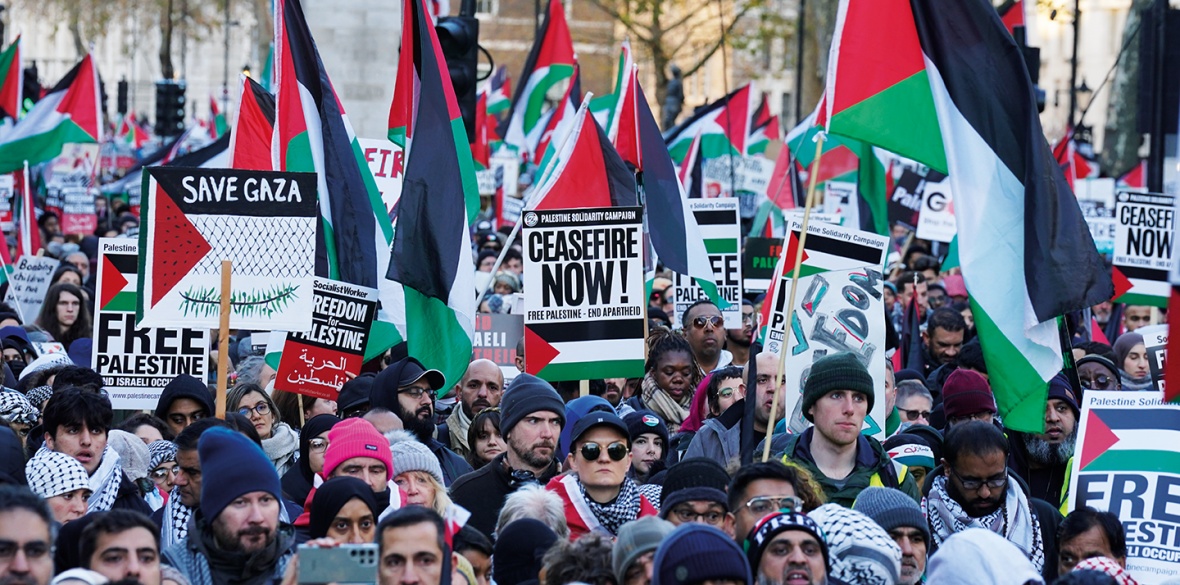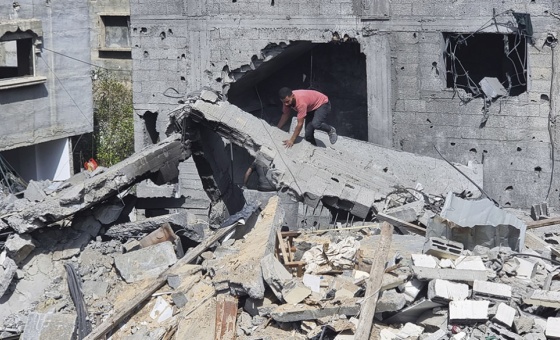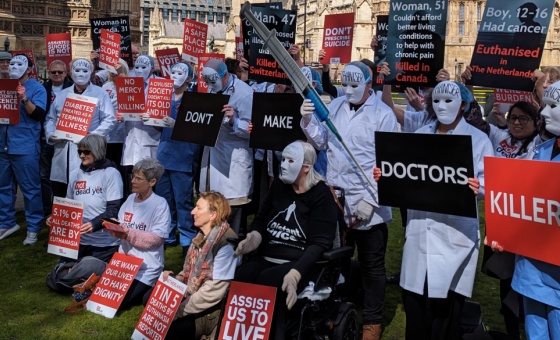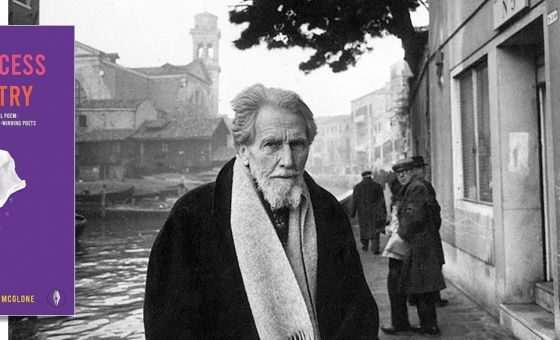This is the last article you can read this month
You can read more article this month
You can read more articles this month
Sorry your limit is up for this month
Reset on:
Please help support the Morning Star by subscribing here
ISRAEL’S war on Gaza and on the Palestinian people is upending politics across the globe. In few places is that more so than in Britain.
It was surreal this week to see the editor of the Jewish Chronicle, a once-respected weekly, accuse former defence secretary Ben Wallace MP of being a Hamas surrogate. Wallace is a hawk and was touted as a replacement from the right of the Tory Party for Liz Truss.
His crime was to say that the way Israel is conducting its war will guarantee a further 50 years of conflict. Then we had pro-Israel efforts to cancel Britain’s entrant to Eurovision on the grounds that he signed a statement denouncing Israel's genocidal war and practice of apartheid.
Away from ticker-tape news feeds only a few of us follow, that story and Taylor Swift attending a Gaza fundraiser cut through at a truly mass level. A part of what is happening in British politics now is the return of a process in which popular sentiment finds focus and expresses itself in mass actions that in turn irrupt into a complacent and detached official politics. It is a refutation of the liberal conceit that the “populist” demon of the 2010s has been put back in its box.
Establishment politicians of all parties have yet to grasp its significance. You could see what they thought would happen in the days after the shock October 7 attacks.
As with the invasion of Ukraine in 2022, there would be ironclad consensus at the top of politics and across corporate media. Buildings to be lit up in the colours of an ally’s flag. Genuine popular sympathies — over suffering invasion in the case of Ukraine, and for civilian victims in Israel — were to be exploited to create a climate of unquestioning militarism.
Any attempt at putting Russia's invasion nearly two years ago into a context of great power competition and proxy war was scorned as “pro-Putin.” There were parallel denunciations of anyone pointing out that the Israel-Palestine conflict did not start yesterday. Big efforts to smother democratic dissent.
Nato governments of centre-left and centre-right utilised Ukraine to try to liquidate the radical left in Europe, whose advances in the previous decade still give them nightmares. The most bellicose were social democrats like Keir Starmer, who seems to suffer neurosis about the socialist left.
They had some success over Ukraine and followed the playbook over Israel. They failed.
The inhuman brutality of Israel’s war, accompanied by a genocidal chorus, brought swift reaction in global opinion. That has massively increased in the last ten weeks.
Crucially, in some countries that sentiment connected with a basic popular good sense built up over years of anti-war and pro-Palestine activities and with the movement structures that had sustained them.
One reason ruling classes and states have been taken aback in several Western countries is that they rarely look downwards to the thinking at the base of society, let alone its ferment and activity.
They notice only when it breaks through into “politics.” Obversely, in Britain they thought that by eviscerating the left from “proper politics” by smashing “Corbynism” in the Labour Party they had altered the underlying reality.
The unprecedented crescendo of national demonstrations rising to 800,000 in a matter of weeks has revealed the true reality. It was not automatic that that would happen.
It depended upon pre-existing organisation that had insisted upon two things, even when the left had a stronger position in Westminster politics.
First, that the agitation, conversations and united activity at the base of society were central to the advance of working-class interests. Second, while some on the left thought it expedient to sideline radical politics on matters such as war and Palestine, it was campaigning on just those issues that had advanced the left and would lift struggles on other fronts.
In terms of immediate and direct political effect, it is difficult to overestimate the historical significance of the mass movement for Palestine. Only one MP was on the first demonstration — Jeremy Corbyn. Since then we have seen the biggest Labour parliamentary rebellion since the Iraq war; 10 Tory MPs coming out for a ceasefire; the sacking of a far-right home secretary and thus renewal of the permanent civil war in the Tory Party.
The attempts by the Tories, pathetically echoed by Labour, to bend minimally under the pressure of the movement have led to one artful formulation after another. They refuse to call for an immediate ceasefire but profess concern for Palestinian dead while taking no action whatsoever against the extreme-right Netanyahu government.
A majority in Britain from the start wanted a ceasefire. The cynicism and contempt for all but a few politicians now is off the scale among large numbers of people.
Starmer’s Labour has for a year relied upon the Tory crisis, government unpopularity and the lightweight Rishi Sunak to get away with winding down promises and expectations, and viciously assailing the left. All on the premise that people want the Tories out and there is nowhere else to go but Labour.
Millions are desperate to get the Tories out and feel a deep anger over their own circumstances contrasted with the crooks who profiteered from Covid. They do favour Labour, however reluctantly or as a default in England.
But there are already signs that the global issue of Palestine is going to impact upon next year's general election.
Conventional commentators dismiss that and cite plainly obvious statistics about the issues that are concerning people. The biggest remains the cost-of-living crisis and the general brokenness of Britain. That feeling is set to grow post-Christmas as figures this week show Britain may be sliding officially into recession.
But the point is not that most people, most of the time, are thinking about Palestine. It is rather that it has become a totemic issue for a significant minority of Labour people especially. It is not only Muslim communities where groups are coming together to maximise impact on candidates and constituencies. It is wider.
And it has what you might call a catalytic effect. Sage establishment scribes assured us that the Iraq war in 2003 would not, and did not, have any impact on the 2005 election. It was only with the fall of Blair three years later that the same people admitted that Iraq directly, and running through other issues such as “trust,” had played a big role in New Labour losing so many votes.
I recall a senior Labour official condescendingly informing me in 2012 that Palestine and foreign policy were not at the forefront of 70,000 people’s minds in the Bradford West by-election. True, I told him, but those matters hold a special place in the hearts of some thousands of people. And they discovered that they could use the election to move many others around them. To give the Establishment a kick up the backside over all sorts of issues where they felt taken for granted. From racism to the state of the city centre.
A general election is not a collection of by-elections. At stake is who will govern the country. At the same time, it would be lightminded to imagine that such semi-subterranean processes cannot happen again, given the general dealignment from parties that profess their ideological similarity more than difference.
Unlike a general election, a by-election can be strongly influenced by a charismatic personality. That said, there are no charismatic personalities on offer over the choice of government in 2024.
We shall see. It is a matter of months. Netanyahu has made clear this war will go on for months. It is already widening to the Red Sea and elsewhere. The global political fallout is growing too. At the time of writing Australia and Spain have refused US requests to send ships to its task force off Yemen to try to browbeat the Ansarallah forces there.
Britain, naturally, has sent forces — and without parliamentary approval. Meanwhile, the demands to stop Israel's war grow, along with the political disruption at home.
Everyone who has ever handed out a boycott leaflet for Palestine or joined a demonstration or blockade or talked to workmates or friends about the issue should know this Christmas period that they have played a role in bringing relief to the Palestinians and reopening the possibility of insurgent socialist politics in Britain.
We need to redouble that effort for the international day of action on January 13 and to build the kind of strong leadership through the movement that has so far resisted authoritarian efforts to stop us.
Four years ago there was understandably terrible demoralisation in Britain after the defeat of the Corbyn experiment in Labour. Now there is hope and it has come from Palestine, a century-long victim of Britain’s ruling class and imperial state.











